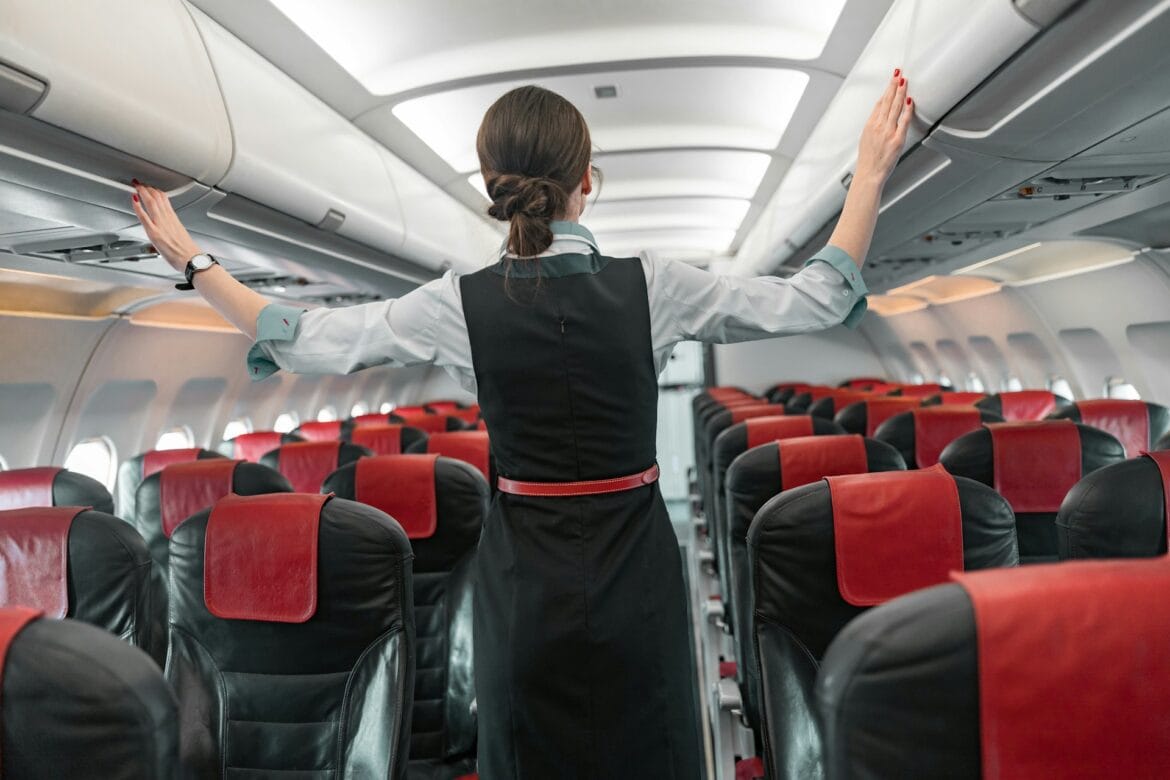An Air Canada flight attendant with more than 34 years of service who was terminated following sexual harassment allegations has been reinstated with a three-month suspension after an arbitrator found that dismissal was “excessive” given significant mitigating factors.
The case involved allegations by a complainant against J.H., who was discharged by Air Canada following a sexual harassment investigation. The arbitrator found J.H. committed two of five alleged incidents but ruled that his exemplary work record and long service justified a lesser penalty.
The allegations
The arbitrator examined five separate allegations of sexual harassment:
- An incident “years ago” where J.H. allegedly made a sexually suggestive comment about the complainant being “a bottom now” during meal cart service
- Another incident “years ago” where J.H. allegedly stood with his crotch facing the seated complainant after lunch, asking “You don’t mind, do you?”
- A July 22, 2022 incident where J.H. and a Flight Service Director made “hand job” comments and laughed while discussing collecting meal trays by hand
- A July 23, 2022 repetition of the “hand job” comments on the return flight
- A July 22, 2022 incident where J.H. allegedly pressed his body against the complainant during pre-boarding, and when told “Get off me. I’m hot,” replied “I know, that’s why I’m here” and lingered before moving away
The investigation process
The arbitrator noted several concerns with Air Canada’s Human Rights and Harassment Office (HRHO) investigation. The investigator’s notes included comments like “Credibility: Likely did it all” and “This is a frat boy,” which the arbitrator found troubling as they “appear to disclose a generalized bias against the Grievor, based upon his demeanor.”
The union successfully argued that these comments revealed that the investigator violated proper credibility assessment principles by relying on demeanor rather than evidence, and by using a “plausible” standard instead of the legal “balance of probabilities” standard.
The arbitrator also observed that investigators conducted only one interview with each person and “did not make any attempts to cross-reference, verify or corroborate each person’s statements, through flight records, or other Flight Attendants, Service Directors, and grooming and catering staff, even though it could have been possible to do so.”
The arbitrator’s findings
The arbitrator determined that Air Canada failed to prove allegations 1, 2, and 4 on a balance of probabilities.
For the first two “years ago” allegations, the arbitrator highlighted that the complainant “could not provide a proximate date, plane type, flight destinations, or other details” and had inconsistencies in her recollection. Moreover, J.H. testified that after reviewing his flight history back to January 2012, he found he had not worked with the complainant on any Toronto-Ottawa-Heathrow flights as she had alleged.
However, the arbitrator found that allegations 3 and 5 were proven and constituted sexual harassment.
Regarding allegation 3 (the “first hand job comment”), the arbitrator noted that J.H. admitted his involvement but questioned Air Canada’s inconsistent handling of the incident. While J.H. was disciplined, the Flight Service Director who initiated the comment received no discipline, which the arbitrator found “inconsistent, and unfair.”
For allegation 5 (the “pressed his body against me” allegation), the arbitrator found the complainant’s account more credible than J.H.’s denial. The arbitrator wrote that “deliberately pressing his body against the Complainant, after she had twice said ‘Get off me. I’m hot’, and saying the sexually suggestive remark of ‘I know, that’s why I’m here’, and lingering for a few seconds, before moving away, is sexual harassment. It is serious misconduct. It warrants significant discipline.”
Mitigating factors
Despite finding that J.H. committed sexual harassment, the arbitrator determined that dismissal was excessive due to several mitigating factors:
- Over 34 years of service with no prior discipline
- An exemplary work record with commendations from passengers and colleagues
- Selection as a Business Class Training Coach
- Admission to involvement in one incident
- Offer to apologize to the complainant
- Willingness to undergo training and voluntary completion of a harassment awareness course
The decision
The arbitrator substituted a three-month disciplinary unpaid suspension for the discharge. J.H. was to be reinstated and “made whole, including back pay, less mitigation of that back pay.”
The arbitrator also noted an inequity in Air Canada’s discharge letter, which stated that J.H. “knew or reasonably ought to have known” his actions violated the harassment policy, given that “the Complainant never made any comment to the Grievor regarding any of her allegations when they occurred” and J.H. first learned of the allegations when informed by the HRHO in October 2022.
For more information, see Air Canada v Canadian Union of Public Employees, Air Canada Component, 2025 CanLII 39078 (CA LA).






